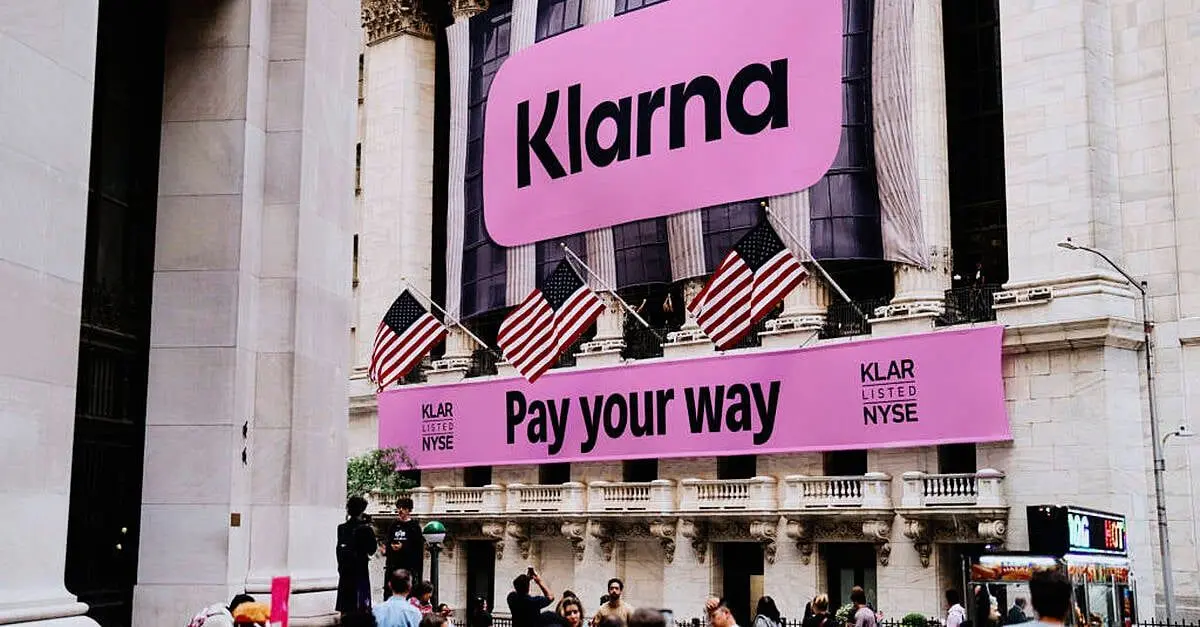Klarna CEO Warns of AI's Massive Impact on Jobs, Halves Workforce
3 Sources
3 Sources
[1]
Klarna CEO halved his workforce to make way for AI -- now, he's warning workers that other 'tech bros' are sugarcoating just how badly it's about to impact jobs | Fortune
"I feel a lot of my tech bros are being slightly not to the point on this topic," Klarna CEO Sebastian Siemiatkowski told Bloomberg on Thursday. "I think there is a massive shift coming to knowledge work. And it's not just in banking, it's in society at large." While some executives have tried to calm fears by saying AI will create new jobs, the 44-year-old buy now, pay later billionaire argues that optimism can be misleading -- especially in the near term. He singled out that in Brussels, thousands of people still work as translators, a job he says can already largely be done by AI. "Society will have to figure out what are we going to do because yes, new jobs will be created, but in the shorter term, that doesn't help the Brussels translator. He's not going to become a YouTube influencer tomorrow," he added. Siemiatkowski has been one of AI's most aggressive adopters, even telling OpenAI's Sam Altman in 2023 that he wanted Klarna to be ChatGPT's "favorite guinea pig." By early 2024, Klarna had launched an OpenAI-powered customer service chatbot that the company claimed could do the work equivalent to 700 full-time agents. But not every experiment went smoothly. Some customers complained about the lack of human support, prompting Klarna to walk back part of its AI-first hiring strategy. "As cost unfortunately seems to have been a too predominant evaluation factor when organizing this, what you end up having is lower quality," Siemiatkowski told Bloomberg in May. "Really investing in the quality of the human support is the way of the future for us." Even with the recalibration, Klarna's AI push has come with real consequences for workers. The company slowed hiring and reduced its employee base from 7,400 to 3,000, Siemiatkowski said. The cost cuts and tech investment have paid off financially. In its most recent earnings report, the fintech firm reported 38% year-over-year revenue growth in the U.S. and rising profits. That momentum helped Klarna go public in September, and today its market cap is just over $15 billion. Fortune reached out to Siemiatkowski for further comment. Siemiatkowski isn't just talking about AI -- he's living it. He told Bloomberg that he uses the technology "all the time." In May, he appeared on an earnings call as an AI-generated video replica, delivering scripted remarks in his own voice and likeness. Klarna also rolled out a 24/7 "AI CEO Hotline," which answers customer questions in Siemiatkowski's conversational style, both in English and Swedish. Even at home, the 44-year-old CEO admits AI has seeped into his off-hours, leaning into vibe coding in particular to explore Klarna's code base. "My wife is complaining because when the kids go to sleep, I'm like, 'Hey, can I just go and vibe code a bit?' So she's not too happy with me," he said. "But it's so intriguing, it's so fantastic to learn these technologies. People should not be afraid of technology."
[2]
Klarna CEO Says AI Will Drive 'Massive Shift' in Employment | PYMNTS.com
By completing this form, you agree to receive marketing communications from PYMNTS and to the sharing of your information with our sponsor, if applicable, in accordance with our Privacy Policy and Terms and Conditions. In a Friday (Oct. 10) interview with Bloomberg Television, Siemiatkowski offered as an example the 8,000 translators working in Brussels, saying that their jobs can be largely done by AI, with some humans providing quality assurance. "The point is, you don't need as many as we did," Siemiatkowski said. "So, there is a massive shift coming. I think society will have to figure out, what are we going to do, because, yes, new jobs will be created but in the shorter term, that doesn't help the Brussels translator." Siemiatkowski said that over the past two years, Klarna has reduced its workforce from 7,400 people to 3,000 even as its revenue and number of customers grew significantly. He added that the company accomplished this in part by greatly reducing its recruitment and thereby avoiding layoffs. "In the end, our job is here to drive as much value at the best possible price to our customers, and so we need to use these technologies to accomplish that," Siemiatkowski said. "And then, in general, I think there will be implications for a lot of knowledge-based work." The PYMNTS Intelligence report "Generation AI: Why Gen Z Bets Big and Boomers Hold Back" found that 33% of those who use generative AI are concerned that the technology might cause people to lose their jobs. By generation, members of Generation Z are most concerned about this issue, at 38%, while those of Generation X are least concerned about it, at 29%, according to the report. PYMNTS CEO Karen Webster wrote Wednesday (Oct. 8) that there is a spread between what something once cost in time spent and what it costs now in time saved in the age of generative AI. "Despite media hype to the contrary, the most sophisticated companies aren't just asking, 'How do we save time?'" Webster wrote. "They're asking, 'How do we reinvest our collective workforce capacity to become a different company?' Part of the answer may be that they don't need as many workers, who then become available for other companies that do."
[3]
Klarna boss says AI has let it cut workforce in half | BreakingNews
The boss of Klarna has said artificial intelligence (AI) has allowed it to cut its workforce in half and stop hiring, as he predicted the technology will spell the end to "excessive profits" in the banking industry. Sebastian Siemiatkowski, co-founder and chief executive of the buy now, pay later giant, said he was trying to be more "honest" on the topic than others in his position. Speaking in an interview to Bloomberg Television, the boss said: "I feel there is a massive shift coming to knowledge work - and it's not just in banking, it's in society at large." "I think society is going to have to figure out what are we going to do," he said, adding that while jobs will be created in the future, there will be a short-term impact on roles like translators which he said can largely be done by AI. Mr Siemiatkowski said Klarna had shrunk its workforce from 7,400 people to about 3,000, while at the same time growing revenues and customers. Overall, it is good for society, it means less excess profits in what has been not as well-functioning markets as they could have been "So, we're simply not recruiting, which means that we can avoid doing lay-offs," he told the news channel. "We have taken a lot of the savings from the payroll costs and reinvested that into the acceleration of the compensation of our employees, which means they are seeing a huge benefit of our supplying AI internally." Mr Siemiatkowski stressed he still sees "concerns for society" about the adoption of the technology, particularly in the hands of non-democratic countries. But he added: "Overall, it is good for society, it means less excess profits in what has been not as well-functioning markets as they could have been." Klarna launched its shares on the New York Stock Exchange last month in what was one of the biggest flotations to occur this year. The 20-year-old business says it is used by some 111 million customers globally, with its flexible payment options offered by retailers at checkouts, including Ticketmaster and Booking.com.
Share
Share
Copy Link
Sebastian Siemiatkowski, CEO of Klarna, warns of AI's significant impact on jobs, particularly in knowledge work. He criticizes tech leaders for downplaying AI's effects and shares how Klarna has leveraged AI to reduce its workforce by half.
AI's Impact on Employment: A CEO's Candid Warning
Sebastian Siemiatkowski, the 44-year-old CEO of buy now, pay later giant Klarna, is sounding the alarm on the profound impact of artificial intelligence (AI) on jobs. In a recent interview with Bloomberg Television, Siemiatkowski criticized fellow tech leaders for not being straightforward about AI's effects on employment
1
.
Source: Fortune
"I feel a lot of my tech bros are being slightly not to the point on this topic," Siemiatkowski stated, emphasizing the need for honesty in discussing AI's implications
1
.Klarna's AI-Driven Transformation
Siemiatkowski has been at the forefront of AI adoption, even telling OpenAI's Sam Altman in 2023 that he wanted Klarna to be ChatGPT's "favorite guinea pig"
1
. This aggressive approach to AI integration has led to significant changes within Klarna:- Workforce Reduction: Klarna has shrunk its workforce from 7,400 to approximately 3,000 employees
2
. - AI-Powered Customer Service: The company launched an OpenAI-powered chatbot capable of handling work equivalent to 700 full-time agents
1
. - Financial Growth: Despite the workforce reduction, Klarna has experienced significant revenue growth and an increase in its customer base
3
.

Source: BreakingNews.ie
The Broader Impact on Knowledge Work
Siemiatkowski argues that the effects of AI extend far beyond the banking sector. He predicts a "massive shift coming to knowledge work" across various industries
2
. To illustrate his point, he cited the example of translators in Brussels:"In Brussels, thousands of people still work as translators, a job he says can already largely be done by AI," Siemiatkowski explained
1
.
Source: PYMNTS
Related Stories
Balancing AI Adoption and Human Expertise
While Klarna has embraced AI, the transition hasn't been without challenges. Some customers complained about the lack of human support, prompting the company to recalibrate its AI-first strategy
1
. Siemiatkowski acknowledged the importance of maintaining quality human support alongside AI implementation.Societal Implications and Future Outlook
Siemiatkowski emphasizes the need for society to address the short-term impact of AI on employment. While new jobs will be created in the long run, he argues that this doesn't help workers facing immediate displacement
2
.Despite these challenges, Siemiatkowski remains optimistic about AI's overall impact on society. He believes it will lead to "less excess profits in what has been not as well-functioning markets as they could have been"
3
.References
Summarized by
Navi
[3]
Related Stories
Recent Highlights
1
ByteDance's Seedance 2.0 AI video generator triggers copyright infringement battle with Hollywood
Policy and Regulation

2
Demis Hassabis predicts AGI in 5-8 years, sees new golden era transforming medicine and science
Technology

3
Nvidia and Meta forge massive chip deal as computing power demands reshape AI infrastructure
Technology







